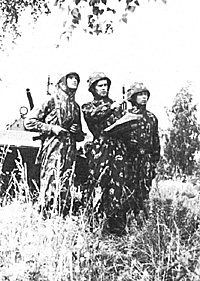 The Time: August 1973.
The Time: August 1973.
The place: Rapid City, South Dakota.
As the workday drew to a close, inhabitants of the midwestern city began to prepare for their journey home. Hump day was over and it was time to dwell on thoughts about plans for the coming weekend. Few paid attention to the dull rumbling issuing from the high plains outside the city and the faint smell of kerosene in the early evening air. Such was commonplace whenever exercises took place at Ellsworth Air Force Base.
Just another exercise. As they scrambled up the ladders under the bellies of the huge B-52 bombers, the crews were annoyed, but took it as part of the job. As each man clambered aboard, his eyes automatically sought out the holders containing the mission envelopes. In many instances, this initial glance was followed by a second, and a tight, sinking feeling. Instead of the standard instructions, the holder contained RED envelopes. Live nuclear weapons had been loaded on each bomber. It suddenly became no exercise.
Many of the crewmen were veterans of missions over Vietnam. They were used to being a little afraid, but few were familiar, until now, with being truly frightened. Over Vietnam, they could hold to the thought that the odds were in their favor to return safely. But all knew that returning from THIS mission might be impossible. And there might not be anything to return to. Over the next four days, the crews sat and waited that call to launch, and thought of what it meant for the world as they knew it to end.
As suddenly as it began, the mission was canceled and the crews stood down.
15 Years Later
Today, almost fifteen years later, the memories of those days still haunt the members of the crews. As the threat of the oil crisis worsened and trouble brewed once again in the Middle East, the United States had been prepared to use the threat of nuclear engagement - and perhaps the actual employment of a nuclear attack - to counter a possible threat to Western security. Little has changed as today the United States and its Western allies still rely on the threatened use of nuclear weapons as a cornerstone of their military policy.
Using nuclear deterrence as a tactical tool is dangerous without question. More importantly, however, continued reliance on such may indicate a basic weakness in Western political and military strategy. Evidence is building that not only have the Western powers NOT changed this basic military posture, but they have failed to recognize a fundamental shift in the approach of their principal opponents, the Soviet Union and its allies. Despite fears that a nuclear confrontation between the Soviet Union and the United States is inevitable, the Soviet Union is making every effort to negate that possibility so that a conventional war will be fought. A war they are firmly convinced will occur and which they firmly believe they will win. To understand this claim, an examination of contemporary Soviet military thought is necessary.
More Soviet Conventional Combat Philosophy by Owen Stanley
- Introduction
Soviet Military Thought
Laws of Military Conflict
Soviet Planning
Opening Assault
Conclusion
Back to Table of Contents: CounterAttack #1
To CounterAttack List of Issues
To MagWeb Master Magazine List
© Copyright 1987 by Pacific Rim Publishing Company.
This article appears in MagWeb (Magazine Web) on the Internet World Wide Web.
Other military history articles and gaming articles are available at http://www.magweb.com